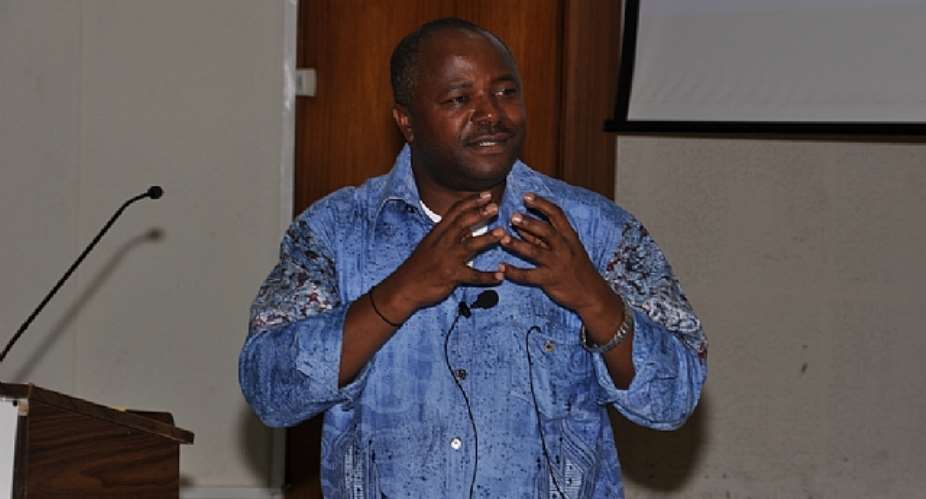Dr. Nteranya Sanginga is the seventh Director-General of IITA. He speaks on Africa's agriculture, making a case for the imperativeness of a Green Revolution, and the way forward.
What are your plans for IITA?
The plan is very simple, we want to strengthen research and to work more closely with our partners so that farmers can benefit more from our technologies. We would like to also focus on capacity building because that is an area that has suffered neglect in Africa. Simply put, we want to make IITA a strategic center for Research-for-Development (R4D) in Africa.
What areas are important in achieving food security in Africa?
One of the key things we need to do is to build capacities in Africa. The second priority is to fill in the yield gap. The yield gap is very wide. For example, while Asians are having between 6 and 7 tons of maize per hectare, many African countries are still having between 1 and 1.5 tons per hectare. So we need to fill that gap and this can be filled only through innovations that would combat diseases/pests, and create new markets and incentives for farmers. Again, we have to deal with the issue of delivery. How do we reach farmers? How do we tackle extension issues and have friendly markets with good policies favoring farmers? These are the questions begging for answers.
How can IITA help small African farmers to tackle these challenges?
We have technologies and improved crop varieties that can increase yield across Africa. We have been disseminating these varieties to farmers and we will continue to do that. We will also help in protecting these improved crops especially against attacks from pest and diseases. IITA also has a very strong component in terms of natural resources management that will tackle soil and forest degradation. But again to do all these, IITA needs financial resources to build its capacity, and to organize good laboratories to be able to deliver.
What challenges are you likely to face as the new Director-General of IITA?
The likely challenge includes that of increasing the capacity of IITA staff to be able to respond to the emerging problems confronting Africa's agriculture. IITA is 45 years old this year and we need to rejuvenate IITA, vis-à-vis improving the labs, and the tools we use.
Are there African countries investing in agricultural research & development?
There are some few countries which have shown the way. You remember the declaration in Maputo by the African Heads of States that each African country should increase its budget by 10%. Countries like Malawi, Rwanda, Mali, and Kenya, have gone beyond that. As a result, Malawi has gone from a food-deficit country to an exporter. Rwanda will soon achieve the same feat. So we have almost 10-13 countries at the moment going beyond that target, but that is not enough. Again, the challenge is to convince and show African governments that research in agric pays off.
Do you think Green Revolution can be achieved in Africa?
Green Revolution is needed in Africa and can be achieved, and I support what the Nigerian government is doing at the moment. I support the agricultural transformation of Nigeria led by Dr. Akin Adesina. It is a must that we have a Green Revolution. It is happening in Malawi. Malawi turned from a famine country to an exporter in just four years. Here in Nigeria it will happen… it is happening in Kenya. All that we need is to have improved technologies in place, improved seeds, inputs and the right policies.
What is your opinion on the impact of the CG reform?
I think this reform was needed and IITA supported it, but we all know that reforms take a long time to have the desired impact. So judging it at this stage is very much premature.





 We’re disappointed over gov’t’s lacklustre attitude to negotiations of our condi...
We’re disappointed over gov’t’s lacklustre attitude to negotiations of our condi...
 No more Buffer Stock as Mahama promises to decentralise SHS food supply
No more Buffer Stock as Mahama promises to decentralise SHS food supply
 NSS urges President Akufo-Addo to sign National Service Bill into law
NSS urges President Akufo-Addo to sign National Service Bill into law
 You're lying, your 7-11pm dumsor attributed to overloaded transformers is false ...
You're lying, your 7-11pm dumsor attributed to overloaded transformers is false ...
 Consult Council of State on anti-gay bill – Mahama advises Akufo-Addo
Consult Council of State on anti-gay bill – Mahama advises Akufo-Addo
 Transport Ministry has no power to determine fares – COPEC
Transport Ministry has no power to determine fares – COPEC
 Brace yourselves for more economic hardship – Prof Adei to Ghanaians
Brace yourselves for more economic hardship – Prof Adei to Ghanaians
 Any government depending on IMF is likely to fail – Grand Coalition
Any government depending on IMF is likely to fail – Grand Coalition
 Ghana risks losing premium cocoa position due to galamsey – COCOBOD laments
Ghana risks losing premium cocoa position due to galamsey – COCOBOD laments
 Akufo-Addo launches NSS policy document to tackle under-utilisation of service p...
Akufo-Addo launches NSS policy document to tackle under-utilisation of service p...
